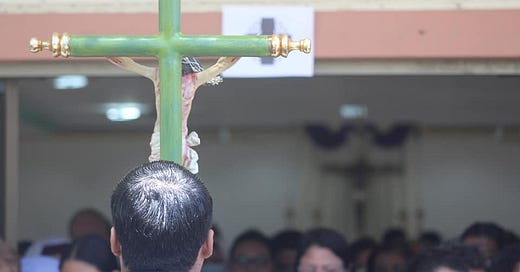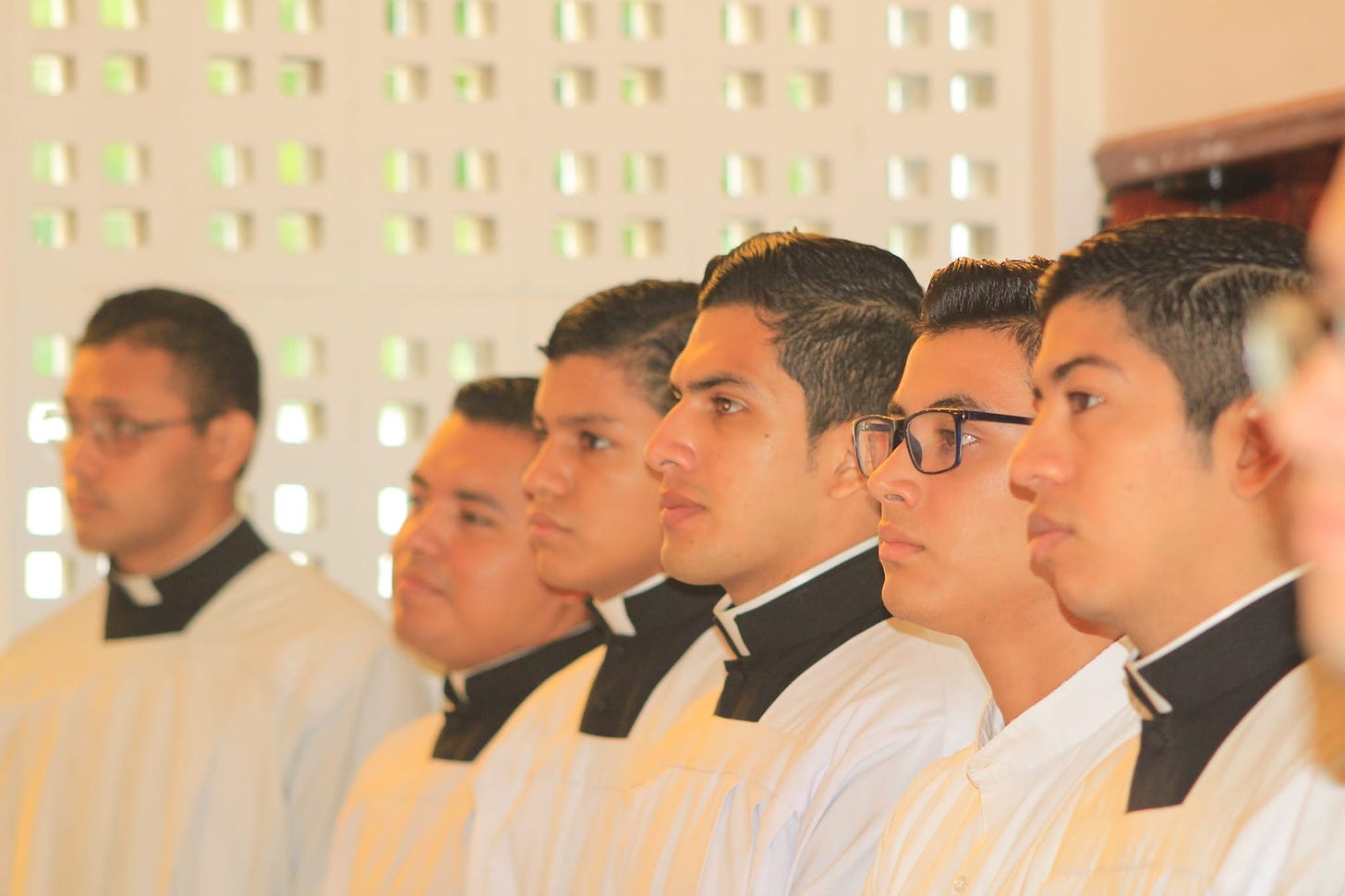
Nicaragua seminary faculty closure was likely forced compromise
The 'voluntary' closure of a Catholic seminary faculty in Nicaragua is unlikely to signal an immediate change for seminary studies
The closure of a Catholic seminary faculty in Nicaragua does not signal an immediate change for seminary studies, experts told The Pillar Thursday, after government officials announced that the academic faculty had been legally dissolved.
The closure reportedly came under pressure from the Nicaraguan government, which has in recent years jailed and exiled priests, expelled religious institutes from the country, and severed diplomatic relations with the Holy See.
According to Nicaraguan legal experts, the faculty likely petitioned for dissolution to avoid seeing seminary property seized by the government, although there remains some chance that properties could be seized in future.
Nicaragua’s Ministry of the Government announced May 18 that the Immaculate Conception Catholic University Association of the Archdiocese of Managua had lost its legal status as both a non-profit and a university, after apparently requesting a “voluntary dissolution” of its corporate identity.
A statement from the Government Ministry said the faculty had not met financial disclosure requirements since 2015, three years after it was founded.
The Immaculate Conception University was founded in 2012 as a degree-granting academic faculty of the archdiocesan La Puíisima Seminary; its first president was Bishop Silvio Báez, a Managua auxiliary bishop who has lived in exile since 2019.
The faculty has offered civilly recognized degrees for seminarians since its inception, and was located in the seminary building, but was a separate legal entity from the seminary itself. The distinction means that dissolving the faculty is unlikely to stop seminary formation in the country.
A Nicaraguan priest, who requested anonymity to avoid government persecution, told The Pillar that “seminarians will continue their studies in the normal way, at the seminary. They have their own teachers, libraries, and facilities. The only thing is that when they finish their studies in philosophy and theology, they will not receive any degree.”
“The regime has annulled this legal personality, but it doesn’t take over the facilities of the La Purisima Seminary,” the priest added.
Israel González, a Nicaraguan journalist, agreed with that assessment.
“At the moment, it only affects the recognition of seminarians' studies. Their degrees will not be valid in Nicaragua, only internally within the Catholic Church,” he explained.
While seizure is not immanent, it remains possible that the seminary property itself could be seized by the government.
A March 2022 law gives Nicaragua’s government new latitude to close civilly registered non-profits in the country, and to limit the activity of foreign NGOs. The Ortega regime has used the law to expel the Missionaries of Charity from the country, and to see the country’s Catholic Charities operation dissolved.
In total, 13 universities have been closed in the last 18 months — including two Catholics universities — and some 30 NGOs and nonprofits have been closed in 2023, including the Red Cross.
Under the new law’s provisions, the assets of organizations which are voluntarily dissolved can be distributed to other organizations. But if the government dissolves an organization for any reason, its property can be seized.
“For now, at least, the Managua seminary has not been expropriated,” González told The Pillar, noting that the prospect remains possible.
But one Nicaraguan attorney told The Pillar that the Managua archdiocese likely struck a deal with Nicaraguan officials, with the academic faculty petitioning for “voluntary dissolution,” as a compromise, to ensure the government would not attempt to seize the seminary’s facilities.
“The figure of 'voluntary dissolution' indicates that there was probably an agreement with the regime to at least save the property,” explained Yader Morazán, a Nicaraguan lawyer in exile.
“But it is a political decision, not a legal one, to attack the Church,” added Morazán.
González agreed, explaining that the Ortega administration has often pressured opposition institutions to voluntarily close their doors rather than see their property or assets seized.
“Voluntary dissolution is a euphemism,” he said. “It is the mechanism the Ortega regime now uses to cancel the legal status of the NGOs in the country, because canceling them directly had had a great negative impact at the level of international cooperation for the regime, so now they are pressured to dissolve voluntarily.”
For his part, Morazán noted the government’s claim that the seminary faculty had failed in recent years to file required financial paperwork could be used in future to seize additional assets, including the seminary buildings in which academic courses were conducted.
But it is not clear whether the faculty was actually in default on paperwork. Among the institutions recently shuttered by the government, several have been accused of failing to file paperwork. Representatives for several of those institutions have said they’ve tried to file new copies of already filed reports, but government officials have refused to accept them.
True or not, the claim leaves open a possible legal mechanism for the seizure of the seminary’s property.
The move is part of a larger crackdown on the Church in Nicaragua, where dozens of priests have been exiled or banned from returning to the country, and at least 10 Catholic radio stations and one TV station have been shut down. Earlier this year, Matagalpa’s Bishop Rolanda Alvarez was sentenced to 26 years in prison, on charges of conspiring against the state.
Neither the Archdiocese of Managua nor the country’s bishops’ conference have commented on the situation at the seminary.









Thank you, Edgar, for this very important and thorough report of the situation in Nicaragua.
In the age of the internet it sometimes seems like TV, radio, and other legacy sources of communication are irrelevant but I'm curious whether any of these have popped back up just across the border in Honduras or Costa Rica, or off the coast? I'm sure the Ortega regime is aggressively trying to control the country's internet access as well so the old-fashioned "Radio Free Nicaragua" model could be impactful.